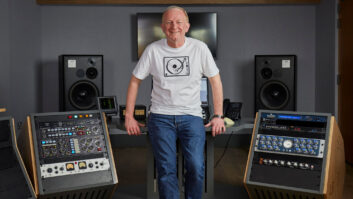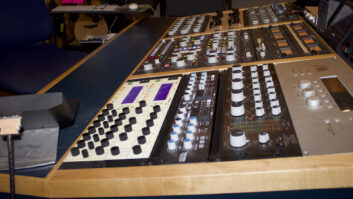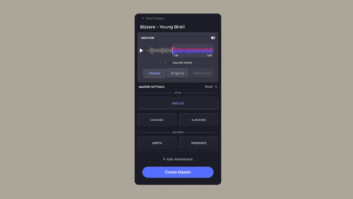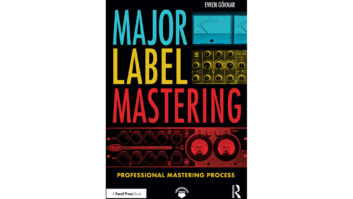The Plangent Processes restoration system enables music industry professionals to re-master material from celebrated artists and feature films, and gain incremental revenue from a re-release. Recognizing the importance and effectiveness of Plangent, Airshow Mastering is now offering tape transfer services that are optimized for Plangent’s proprietary signal processing, which eliminates wow, flutter and other speed aberrations that are present on even the finest analog tape recordings, revealing previously unheard clarity and increased image depth and focus.
“By investing in this new technology that optimizes tape transfers for the Plangent Process, we can help our clients revitalize their analog masters and bring them up to today’s high-def standards with maximum transparency,” explains David Glasser, Airshow Mastering chief engineer. “This is an important mission to us, and it’s a continuation of the archival and restoration work that we’ve done over the years, that earned us two Grammy Awards. Our new custom-built chain is one of a kind, and it sounds fantastic.”
Record labels, film studios, producers, artists and archivists have turned to Jamie Howarth, founder of Plangent Processes, and its authorized providers—Airshow Mastering (music) and Chace Audio (film/video)—to restore their back catalogs of high-profile works. Plangent clients include Grateful Dead Productions, Neil Young, Pete Seeger, Queen, Sony Pictures and Fox Video, among others. Howarth’s work as a mastering engineer on The Live Wire: Woody Guthrie in Performance 1949 won a Grammy in 2008 for Best Historical Album, and Plangent Processes has successfully restored major feature films such as Close Encounters of the Third Kind, West Side Story, Young Frankenstein, and more.
Airshow states that Jeffrey Norman of Mockingbird Mastering, Inc. originally introduced Plangent Processes to Glasser. He says, “I’ve used Plangent Processes on a variety of projects for the Grateful Dead. The sources were both older 16-track tapes as well as 2-track 7.5 ips material. The benefits of using the Plangent Process were the creation of a more pleasant noise floor on these older tapes, added imaging, and outstanding clarity of the audio and pitch solidification. The Plangent Process eliminates the unwanted tape speed variation while keeping the original analog warmth.”
Plangent Processing involves a few steps. First, the original analog masters are transferred to high-resolution digital at Airshow in Boulder, Colo., using custom Plangent tape replay electronics and heads installed on one of Airshow’s ATR-100 tape machines. Successful Plangent transfers require high-bandwidth, low noise replay electronics and heads, and signal analysis tools and techniques. Airshow states that stock tape machines do not have the extended bandwidth and resolution that are needed to be effective.
Speed-correction processing is then done at the Plangent facility in Massachusetts. The process relies on recovering the latent high-frequency record bias signal from a tape or mag film, and using that signal as a reference to speed-correct the audio using proprietary, high quality digital signal processing.
“Out of necessity, many of our clients have to transfer their valuable recordings from worn out original tapes,” states Howarth, founder of Plangent Processes. “We’ve spent thousands of dollars and hours creating a system with the goal of helping them protect their assets. Our tape transfer and processing system provides maximum transparency and restoration achievable today.”
For a free demonstration or information on “Plangent-optimized” transfers, Plangent Processes, and Airshow’s audio mastering services, contact David Glasser or Andrew Starr at 303/247-9035.
Visit Airshow Mastering at www.airshowmastering.com and Plangent Processes at www.plangentprocesses.com.







